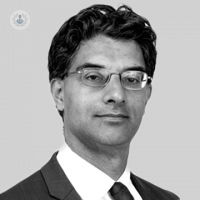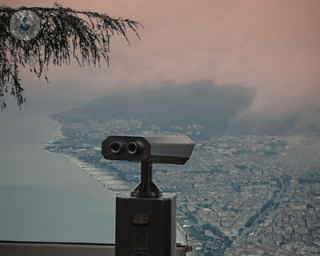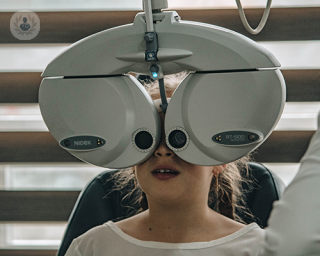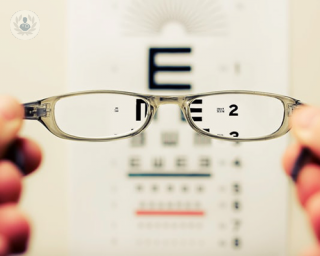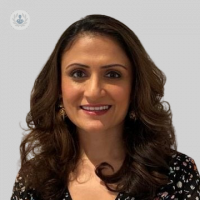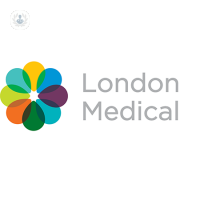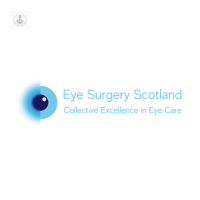Myopia
Professor Adnan Tufail - Ophthalmology
Created on: 11-13-2012
Updated on: 06-28-2023
Edited by: Sophie Kennedy
What is myopia?
Myopia means short-sightedness. People with myopia cannot see things clearly in the distance without wearing glasses or contact lenses, but can see things clearly at close range. Myopia is usually caused by the eyeball growing a little longer than it should.
Over the past fifty years, the proportion of people with myopia in the general population has doubled. Now around twenty-five per cent of young adults in the UK have myopia. The longer the eyeball, the stronger the glasses required to correct distance vision. If a person's glasses are stronger than -5.00 diopters, this is called high myopia. The higher the degree of myopia, the higher the risk of developing serious eye complications later in life, which can permanently reduce vision.

What are the symptoms of myopia?
Myopia can develop in childhood or adulthood, although it tends to stabilise from the age of eighteen years. In addition, it may be associated with other eye conditions, such as astigmatism. People with myopia find that things in the distance look blurred. Children who develop myopia often need to sit at the front of class to see the whiteboard. People may also develop headaches and eye strain.
What are the causes of myopia?
Myopia develops when the eye ball is too long in comparison to the focusing power of the cornea and lens. This means that light rays are focused at a point in front of the retina rather than directly on its surface. Rarely, the cornea, the lens, or both are too curved causing the light rays to be out of focus.
Is myopia genetic?
Although some genes are linked to myopia, the condition is not always inherited and can affect anyone. Nonetheless, people with close family members who suffer from myopia, such as parents or siblings, have a higher risk of also being affected compared with the general population.
Is myopia a serious condition?
General symptoms of myopia, including blurred long-distance vision, can be corrected with glasses or other forms of treatment. Younger people may also benefit from treatment which prevents the condition from worsening.
Degenerative myopia and high myopia are rare forms of the condition which can have more serious complications than general myopia. In these rare cases, the rate at which the eyeball grows in length is faster and can affect vision severely. Degenerative and high myopia can also cause serious complications such as:
- detached retina
- cataracts
- glaucoma
- growth of abnormal blood vessels in the eye, known as choroid neovascularisation

Can myopia be prevented?
At present it is not possible to prevent myopia. Increasing the time children spend outdoors to at least 1.5 hours per day can delay the onset of myopia.
How is myopia treated?
At all ages, glasses can be used to correct blurred vision. Teenagers and adults may decide to wear contact lenses some of the time, and glasses at other times. Adults can also opt to undergo refractive surgery such as PRK and LASIK.
New treatments can slow down the worsening of myopia in children and teenagers. The following are currently available in the UK on private prescription:
- low-concentration atropine eye drops, prescribed by some ophthalmologists
- special contact lenses such as orthokeratology or dual-focus lenses, prescribed and dispensed by some optometrists
- special glasses with multiple optical zones, prescribed and dispensed by some optometrists
All of these forms of myopia management in children and young people require careful monitoring, ideally including six-monthly measurements of the length of the eyeball to ensure that the treatment is working.
Can myopia be cured?
There are two aims to treatment: to slow down the worsening of myopia in children and young people, and to correct the optical problem of not seeing clearly in the distance.
Unfortunately, there is no cure for myopia but regular consultations with your eye specialist can ensure that your control and manage the condition as much as is possible. In some people, myopia stabilises with age and the extent of its effects on vision level off and no longer worsen.
What type of doctor treats myopia?
Specialist optometrists treat myopia.
